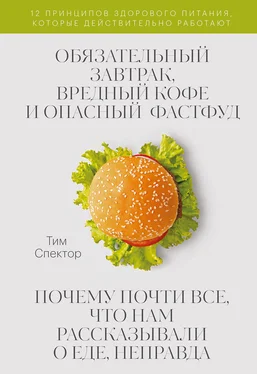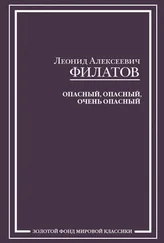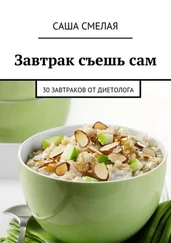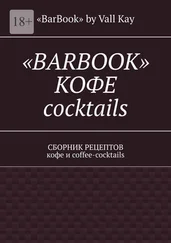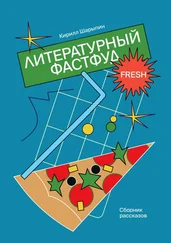Monteiro C. A. Household availability of ultra-processed foods and obesity in nineteen European countries // Public Health Nutrition. 2018. Vol. 21. No. 1. Pp. 18–26.
Steele E. M. Ultra-processed foods and added sugars in the US diet: evidence from a nationally representative cross-sectional study // BMJ Open. 2016. Vol. 6. P. e009892.
Hall K. Ultra-processed diets cause excess calorie intake and weight gain: an inpatient randomized controlled trial of ad libitum food intake // Cell Metabolism. 2019. Vol. S1550–4131. No. 19. Pp. 30248–30257.
Poti J. M. Ultra-processed food intake and obesity: what really matters for health — processing or nutrient content? // Current Obesity Reports. 2012. Vol. 6. No. 4. Pp. 420–431.
Kong L. C. Dietary patterns differently associate with inflammation and gut microbiota in overweight and obese subjects // PLOS ONE. 2014. Vol. 9. No. 10. P. e109434.
Mendonça R. Ultraprocessed food consumption and risk of overweight and obesity // American Journal of Clinical Nutrition. 2016. Vol. 104. No. 5. Pp. 1433–1440; Mozzaffarian D. Changes in diet and lifestyle and long-term weight gain in women and men // New England Journal of Medicine. 2011. Vol. 364. No. 25. Pp. 2392–2404.
Bouzari A. Vitamin retention in eight fruits and vegetables: a comparison of refrigerated and frozen storage // Journal of Agricultural and Food Chemistry. 2015. Vol. 63. No. 3. Pp. 957–962.
fao.org/faostat/.
Bouvard V. Carcinogenicity of consumption of red and processed meat // The Lancet Oncology. 2015. Vol. 16. No. 16. Pp. 1599–1600.
Plant-based meat could create a radically different food chain // The Economist. 12 October 2019.
Dehghan M. Associations of fats and carbohydrate intake with cardiovascular disease and mortality in 18 countries from five continents (PURE): a prospective cohort study // The Lancet. 2017. Vol. 390. No. 10107. Pp. 2050–2062.
Wang X. Red and processed meat consumption and mortality: dose-response metaanalysis of prospective cohort studies // Public Health Nutrition. 2016. Vol. 19. No. 5. Pp. 893–905; Etemadi A. Mortality from different causes associated with meat, heme iron, nitrates, and nitrites in the NIH-AARP Diet and Health Study // BMJ. 2017. Vol. 357. P. j1957.
Zeraatkar D. Red and processed meat consumption and risk for all-cause mortality and cardiometabolic outcomes: a systematic review and meta-analysis of cohort studies // Ann. Intern. Med. 2019. Vol. 171. No. 10. Pp. 721–731.
Rubin R. Blacklash over meat dietary recommendations raises questions about corporate lies to nutrition scientists // JAMA. 2020.
Spector T. D. Bacon rashers, statistics, and controversy // blog.bmj.com. 9 October 2019.
Lee J. E. Meat intake and cause-specific mortality: a pooled analysis of Asian prospective cohort studies // American Journal of Clinical Nutrition. 2013. Vol. 98. No. 4. Pp. 1032–1041.
Lanza E. The polyp prevention trial continued follow-up study // Cancer Epidemiology, Biomarkers and Prevention. 2007. Vol. 16. No. 9. Pp. 1745–1752; Thomson C. A. Cancer incidence and mortality during the intervention and post intervention periods of the Women’s Health Initiative Dietary Modification Trial // Cancer Epidemiology, Biomarkers and Prevention. 2014. Vol. 23. No. 12. Pp. 2924–2935.
Bouvard V. Carcinogenicity of consumption of red and processed meat // The Lancet Oncology. 2015. Vol. 16. No. 16. Pp. 1599–1600.
Anderson J. J. Red and processed meat consumption and breast cancer: UK Biobank cohort study and meta-analysis // Eur. J. Cancer. 2018. Vol. 90. Pp. 73–82.
Średnicka-Tober D. Composition differences between organic and conventional meat: a systematic literature review and meta-analysis // Br. J. Nutr. 2016. Vol. 115. No. 6. Pp. 994–1011.
Willett W. Food in the Anthropocene: the EAT-Lancet commission on healthy diets from sustainable food systems // The Lancet. 2019. Vol. 393. Pp. 447–492.
Poore J. Reducing food’s environmental impacts through producers and consumers // Science. 2018. Vol. 360. No. 6392. Pp. 987–992.
Springmann M. Options for keeping the food system within environmental limits // Nature. 2018. Vol. 562. Pp. 519–525.
Springmann M. Health-motivated taxes on red and processed meat: a modelling study on optimal tax levels and associated health impacts // PLOS ONE. 2018. Vol. 13. No. 11. P. e0204139.
Capper J. L. The environmental impact of beef production in the United States: 1977 compared with 2007 // Journal of Animal Science. 2011. Vol. 89. Pp. 4249–4261.
Lopez A. Iron deficiency anemia // The Lancet. 2016. Vol. 387. No. 10021. Pp. 907–916.
Mentre A. Evolving evidence about diet and health // The Lancet Public Health. 2018. Vol. 3. No. 9. Pp. e408–e409; Jacka F. N. Association of Western and traditional diets with depression and anxiety in women // American Journal of Psychiatry. 2010. Vol. 167. No. 3. Pp. 305–311.
Jacka F. N. Red meat consumption and mood and anxiety disorders // Psychotherapy and Psychosomatics. 2012. Vol. 81. No. 3. Pp. 196–198.
Daley C. A. A review of fatty acid profiles and antioxidant content in grass-fed and grain-fed beef // Nutrition Journal. 2010. Vol. 9. No. 1. P. 10.
Pelucchi C. Dietary acrylamide and cancer risk: an updated meta-analysis // International Journal of Cancer. 2015. Vol. 136. Pp. 2912–2922.
Lee J. G. Effects of grilling procedures on levels of polycyclic aromatic hydrocarbons in grilled meats // Food Chemistry. 2016. Vol. 199. Pp. 632–638; Stec A. A. Occupational exposure to polycyclic aromatic hydrocarbons and elevated cancer incidence in firefighters // Scientific Reports. 2018. Vol. 8. No. 1. P. 2476.
Скампи (итал. scampi) — крупная морская креветка с длинными тонкими клешнями; другие названия: норвежский омар, дублинская креветка, лангустин. В итальянской кухне таких креветок поджаривают на гриле: шейки маринуют в оливковом масле с чесноком и жарят на шампурах; также иногда их употребляют в сыром виде (scampi crudi).
Gifford C. L. Broad and inconsistent muscle food classification is problematic for dietary guidance in the US // Nutrients. 2017. Vol. 9. No. 9. P. 1027.
Bergeron N. Effects of red meat, white meat, and nonmeat protein sources on atherogenic lipoprotein measures in the context of low compared with high saturated fat intake: a randomized controlled trial // Am. J. Clin. Nutr. 2019. Jun. 4: online.
Читать дальше
Конец ознакомительного отрывка
Купить книгу
